Are you passionate about bringing people together to share ideas and experiences? Forming a student club can be an exciting way to create a vibrant community on campus. Not only does it allow you to connect with like-minded individuals, but it also offers fantastic opportunities for personal growth and leadership development. Ready to dive into the details on how to get started? Let's explore the process together!

Club Name and Mission Statement
The Green Earth Initiative, an environmental advocacy group, aims to foster sustainability awareness and promote eco-friendly practices within the student community at Evergreen University. The club seeks to engage members through monthly workshops, community clean-up events, and collaborations with local organizations such as the Evergreen Nature Center. By focusing on practical actions and education, the Green Earth Initiative intends to inspire students to adopt greener lifestyles and contribute positively to their environment. The founding meeting is scheduled for March 15, 2024, at the Student Union Building, Room 202, where potential members can learn more about activities and leadership opportunities.
Proposed Activities and Objectives
Student clubs play a vital role in enhancing the educational experience by fostering community engagement, leadership skills, and collaboration among peers. One proposed activity could involve organizing quarterly workshops focused on personal development and academic skills, featuring expert speakers from local universities or industries. Such workshops might address topics like time management, effective communication, and stress relief techniques, benefiting students' overall academic performance. Another objective could include establishing community service projects to promote social responsibility, collaborating with organizations such as Habitat for Humanity or local food banks. Additionally, hosting monthly social events will help strengthen relationships among members, providing networking opportunities, and promoting inclusivity within the club's diverse environment. These activities aim to enrich the student experience, ensuring personal growth and connection among participants.
Membership Information and Requirements
Student clubs at universities, like the University of California, Berkeley, often require specific membership criteria to ensure a diverse and engaged community. Typically, prospective members must be current students enrolled in at least 12 units per semester (part-time status), with a demonstrated interest in the club's focus area. A minimum GPA requirement, such as 2.5 on a 4.0 scale, may be set to promote academic responsibility. Clubs may also host informational meetings, like those held each fall semester, where students can learn about activities, leadership opportunities, and community service projects, such as local outreach initiatives. Additionally, clubs often ask for a completed membership application, which includes personal details, interests, and previous involvement in related activities, enhancing the selection process and ensuring a good fit within the club.
Leadership Structure and Roles
The leadership structure of a student club, such as the Eco Warriors at [University Name], encompasses various roles vital for effective operation. The President, typically a senior or experienced member, oversees club activities, organizes meetings, and serves as the primary representative. The Vice President supports the President and assumes responsibilities in their absence, often coordinating events like campus clean-up days. The Secretary maintains accurate records of meetings, handles communication, and manages the club's social media presence to promote eco-friendly initiatives. The Treasurer manages finances, ensuring transparent budgeting for events such as sustainability workshops. Additional roles may include Committee Chairs focusing on specific projects like recycling campaigns or educational outreach programs. This structured approach fosters collaboration, encourages member participation, and enhances the overall impact of the club's mission to promote environmental awareness on campus.
Support and Resources Needed
Creating a student club requires resources and support to foster a vibrant community. Essential resources include meeting spaces, such as campus auditoriums or student lounges, that comfortably accommodate groups of varying sizes. Necessary materials involve promotional items like flyers and banners to raise awareness, along with supplies for activities or events, such as art supplies for creative workshops or equipment for physical activities. Financial support from the student activities fund can facilitate guest speaker engagements, workshops, and community service projects, enhancing club experiences. Additionally, mentorship from faculty advisors is crucial to guide club leadership and ensure alignment with educational objectives. Collaborations with other campus organizations can broaden outreach, creating a more inclusive atmosphere and encouraging diverse participation. These elements combined ensure a successful and thriving student club experience.
Letter Template For Student Club Formation Samples
Letter template of student club organization focused on environmental awareness.
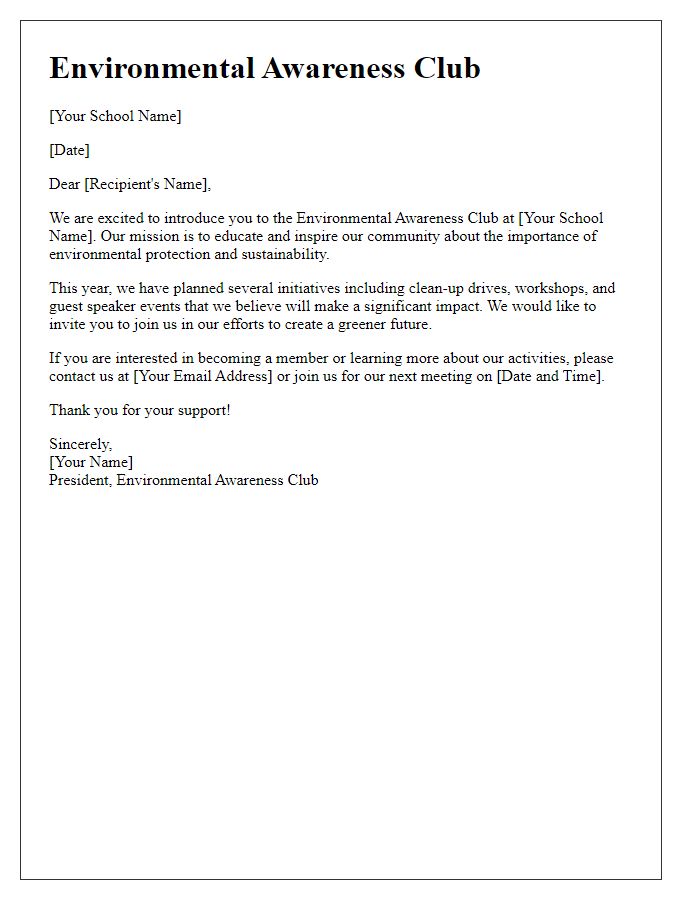
Letter template of student club establishment for technology enthusiasts.
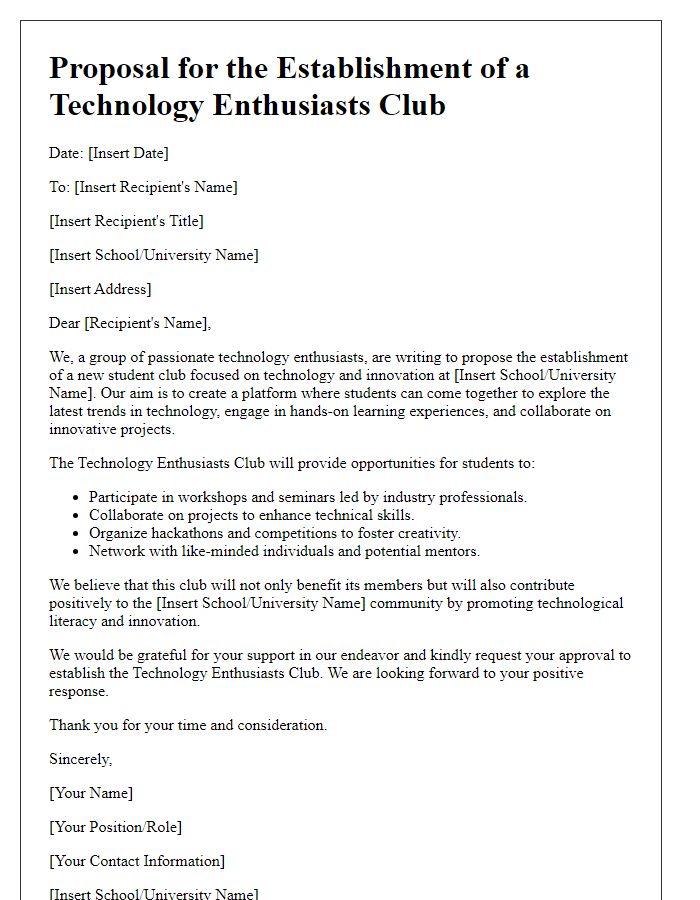
Letter template of student club foundation aimed at mental health advocacy.
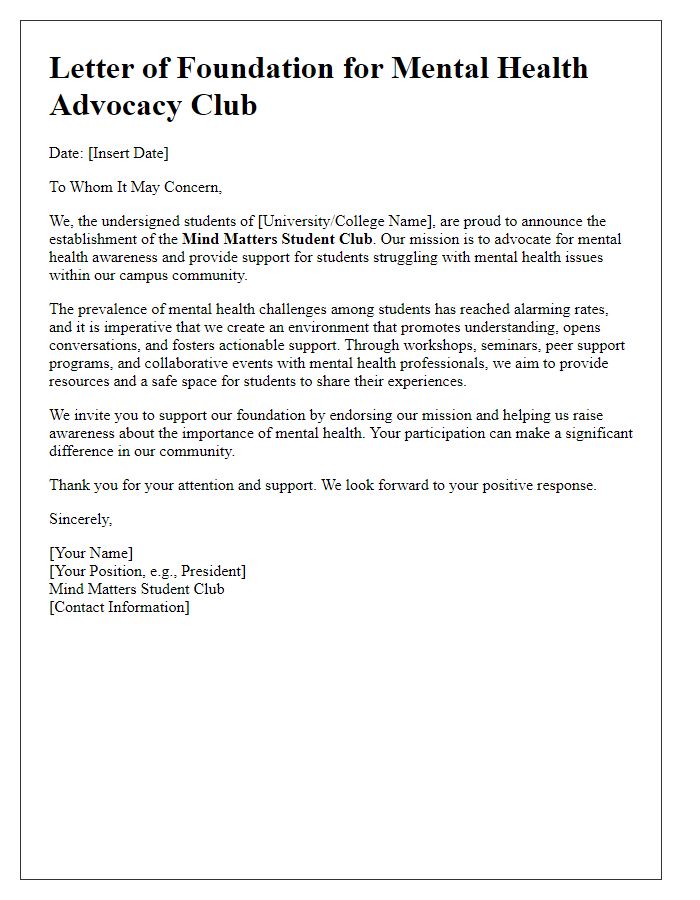

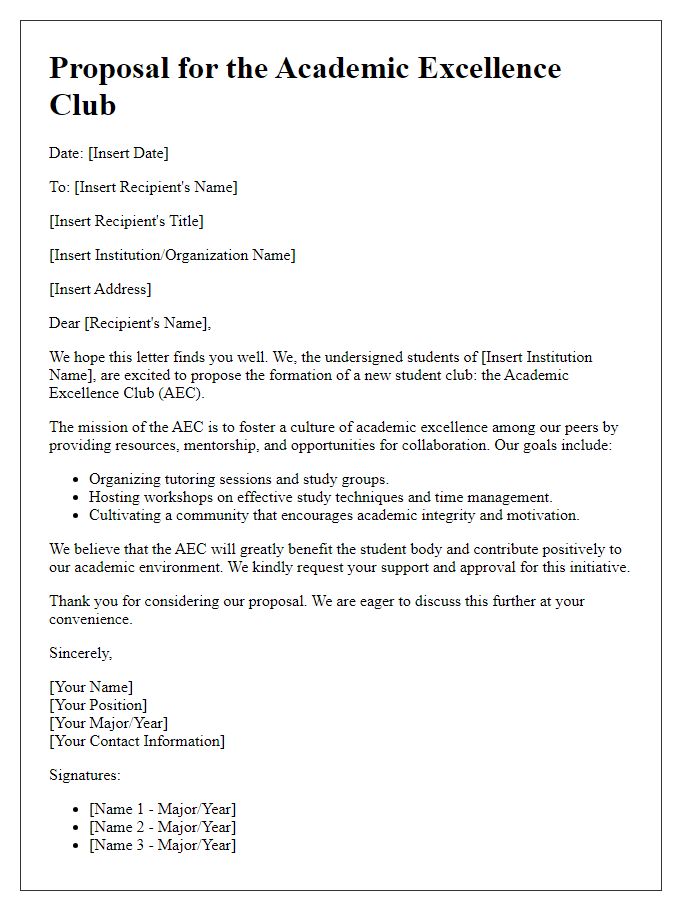
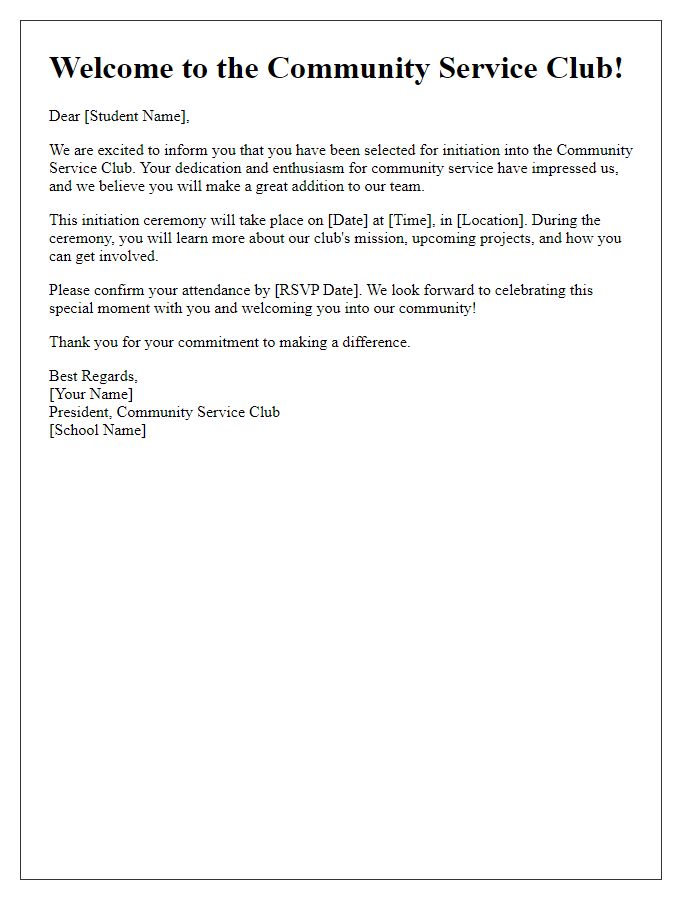
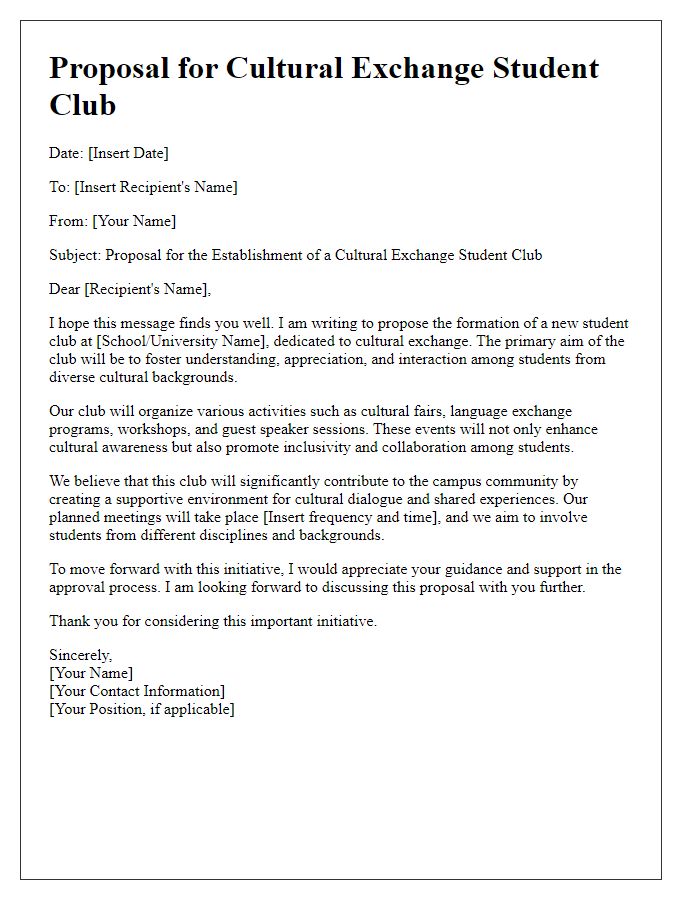
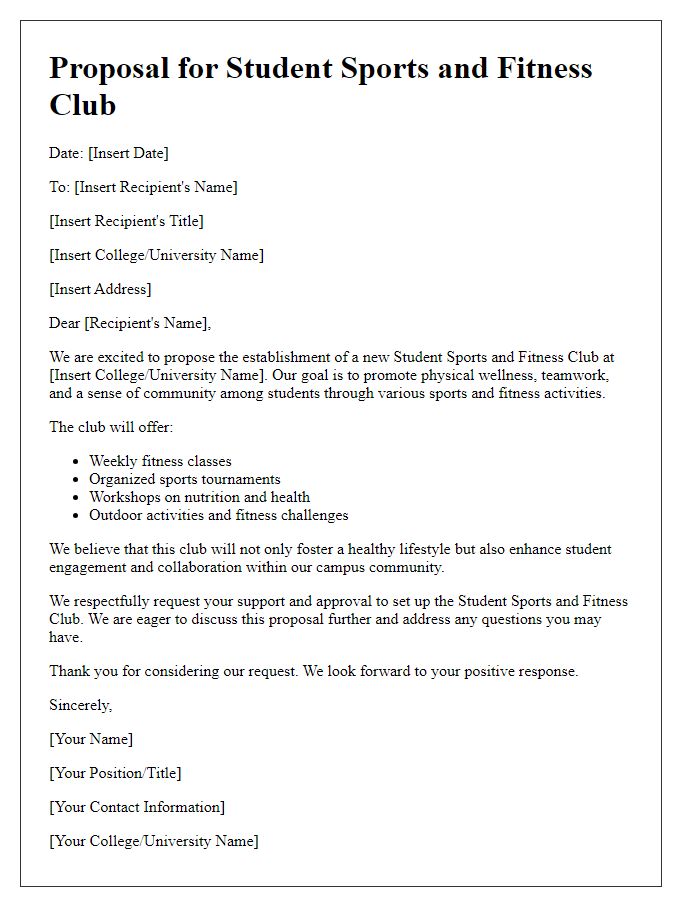

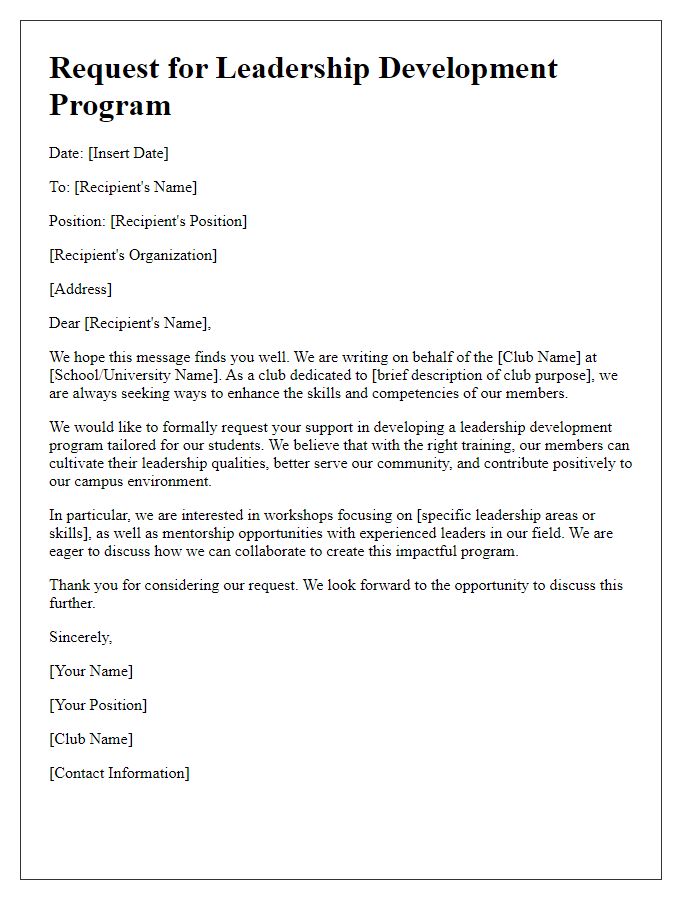
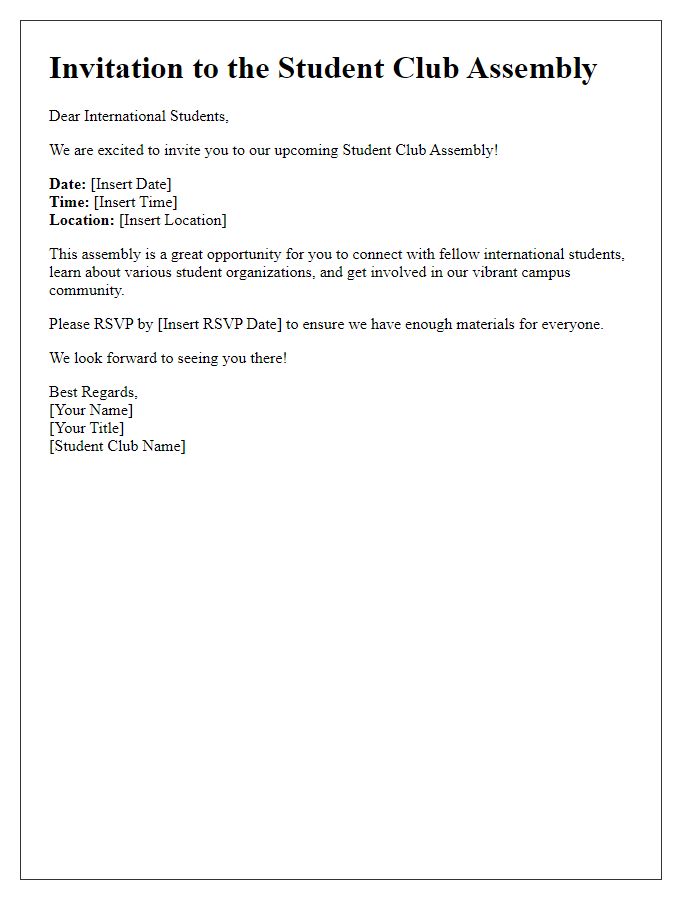


Comments